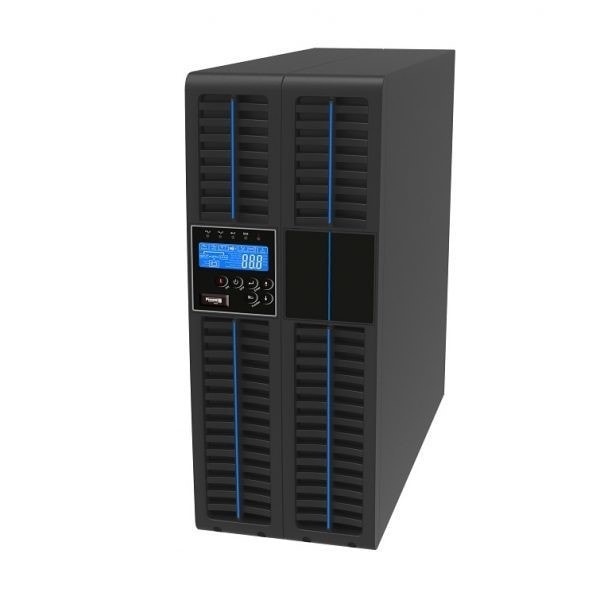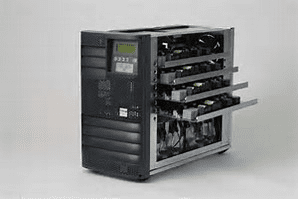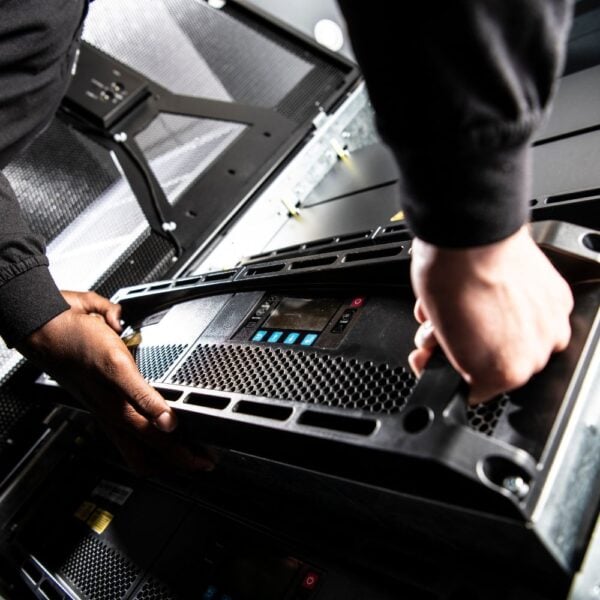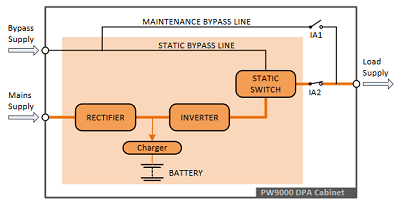The large scale of data centres and other IT and communications facilities highlights a need for exemplary performance from all their equipment, as their operational size magnifies the impact of any shortcomings. With UPSs, for example, compromised availability could lead to a massive service outage with severe damage to the owner’s bottom line and reputation. Additionally, poor energy efficiency on a large scale will lead to high and significant utility bills.
Against this background, it’s not surprising that data centre owners invest in the best available advanced-technology UPSs to mitigate the risk of such scenarios. Accordingly, their staff’s IT environment is reliable, efficient and well-protected – but what happens to all the workers based in branch offices, smaller companies or self-employment rather than large facilities?
A large population in smaller-scale sites
The self-employed category alone is large enough, with the Office of National Statistics[i] reporting that in 2014 up to 4.2 million people, or 13.9% of the UK workforce, worked from home. Additionally, according to the FSB[ii], small enterprises accounted for 99.3% of all private sector businesses at the start of 2016.
These figures suggest that in the UK there are large numbers of IT users operating in small-scale environments. And while a power problem for them will have less impact on the world at large, it could be just as devastating for those who are involved. So wouldn’t it be great for all concerned if this large market was served by UPS solutions that offered data centre performance levels and capabilities in small office-sized packages?
Data centre performance with scaled-down capacity
Fortunately, this market is being addressed, as we can show with a couple of suitably-chosen examples. They’re both single-phase, allowing easy set-up in office environments without needing specialist installation skills or equipment.
Users with perhaps just a single workstation comprising a PC and a couple of peripherals could start with a 1kVA or 2kVA KOHLER PW 1000 UPS, which offers appropriately-scaled power capacity along with other benefits. It has a compact design, available in both free-standing tower and 19” rack-mounting versions. Unlike lower-cost offline devices, it offers full protection to the critical load; it completely regenerates the utility power to provide a clean and stable AC output.
Operating efficiency is high, at 94%; this can be improved to 98% by running in eco-mode. At 1 – 3kVA power levels, the KOHLER PW 1000 offers a 0.9 output power factor with low input THDi of <3%. Users can scale their UPS installation in two ways, either by buying larger units – capacities of 3, 6 and 10 as well as 1 and 2kVA are available – or by paralleling up to four units, with automatic parallel operation for 6 – 10kVA UPSs. Paralleling like this can both increase capacity and provide N+1 redundancy, which improves availability. Matching battery cabinets can be added to extend the back-up time to several hours.
KOHLER PW 1000 UPS (From KUP website)
Users can easily monitor their UPS status, and react early to any actual or potential problems, through the embedded screen which displays in real time all major system parameters and current status, including load level, battery level, system wiring faults, overload and programmable output status.
The MINIPowerPLUS is an alternative rack-mounting or tower UPS solution, built for offices and IT rooms where space is limited. 5kVA and 10kVA models accept four or eight 1.25kVA boards, and four or 10 battery strings respectively. The boards can be deployed to achieve scalability or redundancy.
These UPSs are just a couple of examples of how users can combine data centre-type levels of power quality, availability, efficiency and scalability with office-oriented levels of cost, complexity and equipment footprint.
MINIPowerPLUS UPS (from here)
References
[i] https://www.bbc.co.uk/news/business-27694938
[ii] https://www.fsb.org.uk/media-centre/small-business-statistics






